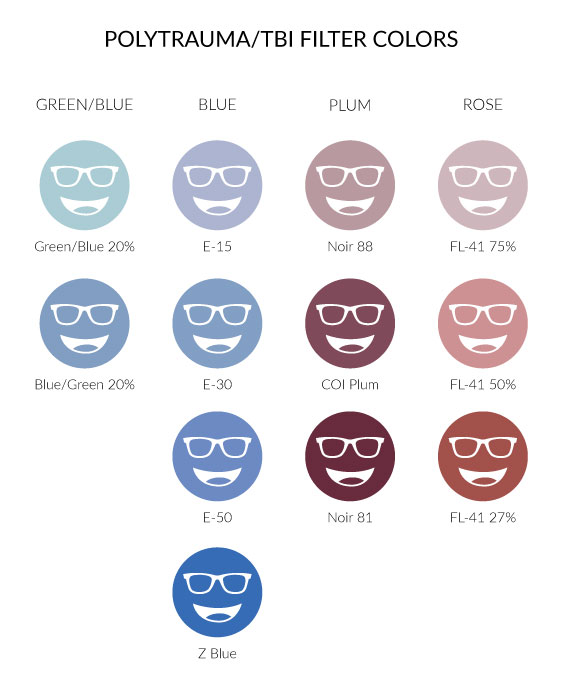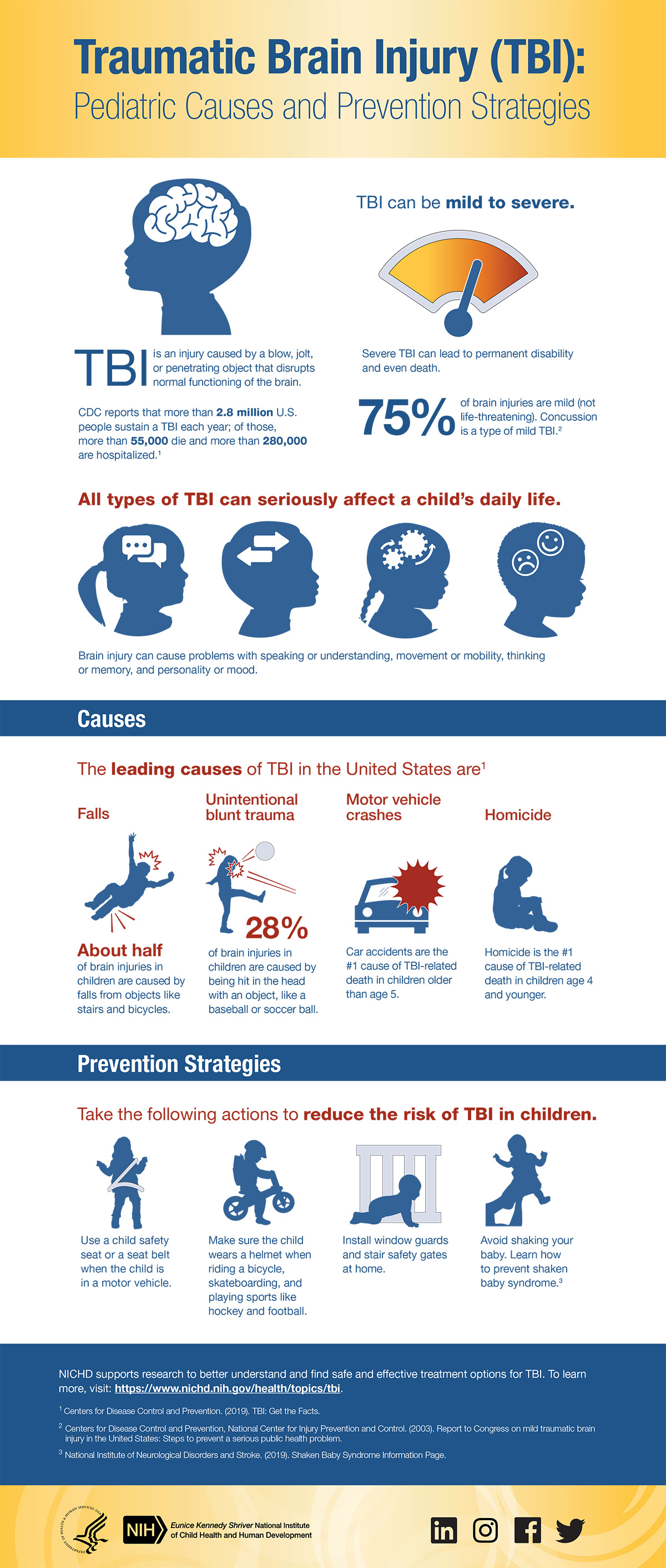Do Brain Injuries Affect Vision?
We’ve covered the eye-brain connection and why an issue with one may be a direct result of a problem with (or affecting the proper functioning of) the other. Now we’re going to address types of brain injuries and their potential effects on vision.
Are ALL Brain Injuries and Vision Issues Related?
The short answer is, ‘No.’ To be clear, not ALL brain injuries will automatically cause vision issues, BUT if you have suffered some type of brain injury (such as a concussion) AND you’re noticing your vision isn’t quite what it used to be, there’s a good chance the two problems are related. Keep in mind, though, you may also be suffering from a range of issues that you aren’t even connecting to the TBI, such as extreme fatigue, difficulty focusing your thoughts, increased sensitivity to sounds and lights, headaches...these can also be problems stemming from a TBI.
While eye and vision problems can stem from a wide variety of causes, from disease to malnutrition, because of the eyes’ connection to the brain, any rattling of your brain cage may end up ‘disconnecting’ or loosening some wiring. Which leads us to...TBI.
TBI is What, Exactly?
A TBI is a traumatic brain injury caused by any external blow to the skull. Getting knocked around in a football game, a car crash, being too close to an explosive blast in a war zone, a simple slip and fall, a stroke, physical abuse - they can ALL cause a TBI.
According to Traumatic Brain Injury, the top three causes of TBI are car accident, firearms and falls. Some of the top causes of TBI in children are falling, unintentional blunt trauma, and car crashes. When it comes to children, in fact, ANY type of TBI can seriously affect a child’s development in terms of speech and visual acuity, movement and mobility, cognitive processing and memory, and personality and mood.
What happens in injuries like concussions is that the brain swells from the impact, putting pressure on the cranial nerve receptors (like that good ol’ optic nerve) and hindering their ability to do their job correctly, if at all. A squeeze on the nerve receptors inhibits the ability of the receptors to properly transport information to and from the eyes and brain.
What’s Going On - Your Vision After Brain Injury or Trauma
What happens when you suffer a traumatic brain injury like a concussion? Well, you might find your vision goes a little haywire. But it may not happen immediately. Some signs or symptoms may take weeks to show up. So don’t immediately rule out a TBI as a source of the problem if your vision symptoms don’t show up immediately after you suffer a brain injury. The problem may take a few weeks to make a noticeable impact.
There ARE Possible Fixes for Vision Problems Stemming From TBI
For a long time, there wasn’t a comprehensive connection in terms of medical treatment when it came to linking vision issues and brain injuries. Thankfully, that is now changing, and places like the VA polytrauma centers now do complete visual examinations as a required part of testing for brain injury for combat veterans and other military personnel. Can we get some applause for the VA??
However, we still have a way to go. Typically, civilian treatment for TBIs still does not include comprehensive visual examinations, which means vision problems connected to TBIs that could and should be addressed can easily fall through the cracks.
We know there are some ‘obvious’ solutions to offset these issues, such as getting specific glasses customized to meet your vision needs. Medical filters and specialty tints are all potential options for minimizing the effects of vision problems and maximizing sight. Lens tint can potentially help diminish the symptoms of migraines and epilepsy, for example. Better lighting in your home or workspace can even go a long way in assisting with vision issues.

Something as simple as trying on a variety of sunglasses with different lens tints might be helpful in determining if a specific lens color provides you with some relief.
What To Look For If You’ve Suffered a TBI
While it may take a while for vision problems and symptoms to appear after the event, as mentioned previously, there ARE warning signs to keep an eye out for if you’ve had a TBI.
Watch for the following:
- Dizziness
- Walk or stride (gait) issues
- Focusing problems, such as on or near objects, or on your digital devices
- Balance problems
- Spatial perceptual deficits
- Headaches and/or migraine
- Issues with depth perception
- Double vision (diplopia)
- Vertigo
- Floaters
- Nausea and/or vomiting
- Light sensitivity (AKA photosensitivity)
- Ocular or periocular pain
- Decreased night vision
- Face turn or head tilt
- Missing part of or restricted field of vision
- Flashing lights (AKA dazzling)
- Unusual and excessive fatigue
- Headaches
- Difficulty focusing your thoughts
- Neck pain
- Sensitivity to loud sounds
Depending how bad that injury is to your noggin, a TBI can even cause blindness.
Comprehensive visual examinations should be common protocol for anyone who has suffered a concussion or other TBI, to ensure vision health as well as neurological health.
If you have suffered any sort of TBI and notice any of the above symptoms, call your doctor and make an appointment to have both the gray matter in your head and those eyeballs tested. That TBI could very well be the culprit causing your vision woes. Or, conversely, your vision woes might be stemming from a TBI.
Also, do yourself a low-maintenance favor and get to a local store that carries sunglasses. Try on a bunch of pairs with a variety of different tints. You may be surprised to find that your solution might be as easy as just adding a little color to your current lenses.

